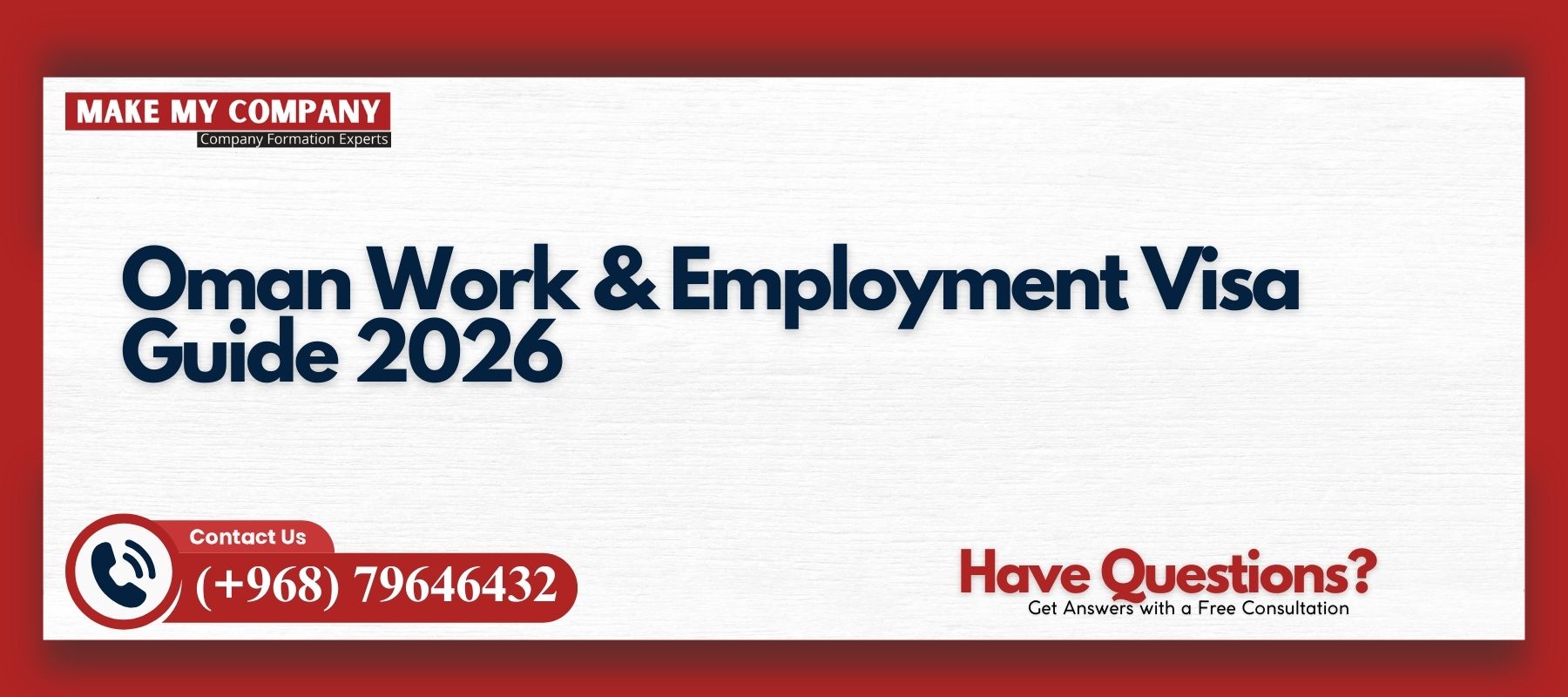Starting a business in Oman can be an exciting venture for aspiring entrepreneurs. With a stable economy, strategic location, and pro-business government policies, Oman is increasingly becoming an attractive destination for both local and international investors. This guide will walk you through the steps and requirements to start your own business in Oman, providing practical advice to help ensure a smooth and successful business setup process.
Why Start a Business in Oman?
Oman offers numerous benefits for those interested in entrepreneurship in Oman. These include:
- Stable Economic Growth: Oman’s government actively supports economic diversification, making it a promising market for various industries.
- Strategic Location: Located at the crossroads of major trade routes, Oman is ideal for businesses aiming to access markets across the Gulf, Asia, and Africa.
- Pro-Business Environment: Oman has introduced policies to streamline business setup in Oman, including flexible regulations for foreign ownership in specific sectors.
Whether you’re a new entrepreneur or an experienced investor, Oman business formation offers an accessible path for starting and growing a successful enterprise.
Steps to Starting a Business in Oman
1. Understand the Types of Business Entities Available in Oman
The first step in establishing a business in Oman is choosing the type of business entity that best suits your needs. Some of the common options include:
- Limited Liability Company (LLC): Popular for both local and foreign investors, requiring at least two shareholders.
- Branch Office: For foreign companies wanting to conduct operations within Oman without forming a new entity.
- Free Zone Company: For businesses focusing on trade, import/export, or logistics. Oman has several free zones offering tax benefits and 100% foreign ownership.
Each entity has specific requirements, including share capital, legal structure, and operational guidelines. Research these options thoroughly to understand which fits your Oman business formation goals.
2. Choose a Suitable Business Name
Selecting an appropriate and unique business name is essential. Your business name must:
- Be relevant to your industry
- Avoid prohibited terms (such as religious or offensive words)
- Pass the approval process with Oman’s Ministry of Commerce, Industry, and Investment Promotion (MOCIIP)
A unique, relevant name strengthens your brand presence in the Omani market and complies with local legal requirements.
3. Obtain Required Licenses and Permits
Once your business setup in Oman is defined, you need to apply for the appropriate licenses. These may include:
- Commercial Registration: Every business needs this registration with MOCIIP.
- Industry-Specific Permits: Depending on your business activities, you might require additional licenses (e.g., for hospitality, healthcare, or education).
For specific industries, consulting local experts on Oman business formation requirements can help streamline the licensing process.
4. Arrange for Office Space
All businesses in Oman must have a registered physical address. Here are the primary options:
- Free Zone Offices: Ideal for import/export businesses and those targeting international markets.
- Commercial Rental Spaces: For businesses with operations within city limits, various rental options are available.
The right office space helps establish your business presence and contributes to its overall credibility.
5. Register for Taxes
Understanding the tax obligations in Oman is critical. While there’s no personal income tax in Oman, corporate taxes apply. Key tax requirements include:
- Corporate Tax: Generally levied at a rate of 15%, though free zones may offer exemptions.
- Value Added Tax (VAT): Implemented in recent years, with a rate of 5% on most goods and services.
Knowing your tax obligations in advance will keep your business compliant and help you avoid potential penalties.
6. Open a Business Bank Account
To conduct financial transactions, you’ll need a business bank account in Oman. Major banks like Bank Muscat, Oman Arab Bank, and National Bank of Oman provide dedicated services for business owners. Having a local account facilitates smoother transactions and enables you to manage payroll, vendor payments, and revenue effectively.
7. Hiring Employees
Once your business is operational, you may need to hire employees. Familiarize yourself with Oman’s labor laws, which cover areas such as working hours, leave entitlements, and employee rights. For foreign workers, you’ll need to secure work visas through the Ministry of Manpower.
Key Tips for Entrepreneurship in Oman
Here are a few valuable tips for ensuring success when starting a business in Oman:
- Conduct Market Research: Before launching, study the local market to understand demand, customer preferences, and competition.
- Leverage Oman’s Free Zones: If your business involves international trade, operating within a free zone can provide significant tax benefits and enable 100% foreign ownership.
- Build a Local Network: Networking with local businesses and authorities can provide valuable insights and facilitate smoother operations.
- Stay Compliant: Compliance with Oman’s business laws is essential for sustained growth. Keep up to date with regulations to avoid potential legal issues.
Common Challenges and Solutions in Business Setup in Oman
While business setup in Oman is relatively straightforward, you may face challenges such as:
- Cultural Differences: Building a successful business in Oman requires understanding and respecting local customs. Engaging with Omani partners or advisors can help bridge cultural gaps.
- Navigating Regulations: Compliance with local laws is essential, and processes may differ from those in other countries. Consulting with a legal advisor is highly recommended.
- Competition in Specific Sectors: Industries like tourism and retail are highly competitive in Oman. Focus on unique selling points and customer service to stand out.
Key Benefits of Oman Business Formation
Oman’s business environment is ripe with opportunities, offering numerous advantages:
- Strategic Trade Hub: Oman’s geographic position facilitates trade across the Gulf and other international markets.
- Modern Infrastructure: Oman’s infrastructure supports business growth, particularly in logistics, tourism, and industrial sectors.
- Supportive Government Policies: Oman offers incentives to promote entrepreneurship in Oman and encourage foreign investment, especially in targeted sectors like technology and renewable energy.
Conclusion
Starting your own business in Oman can be a fulfilling journey, provided you plan carefully and understand local regulations. By following the steps outlined above, your business setup in Oman will be smooth, and you’ll be positioned to make the most of Oman’s pro-business climate. With the right approach, you can capitalize on Oman’s market potential, strategic location, and welcoming attitude toward foreign investment.









